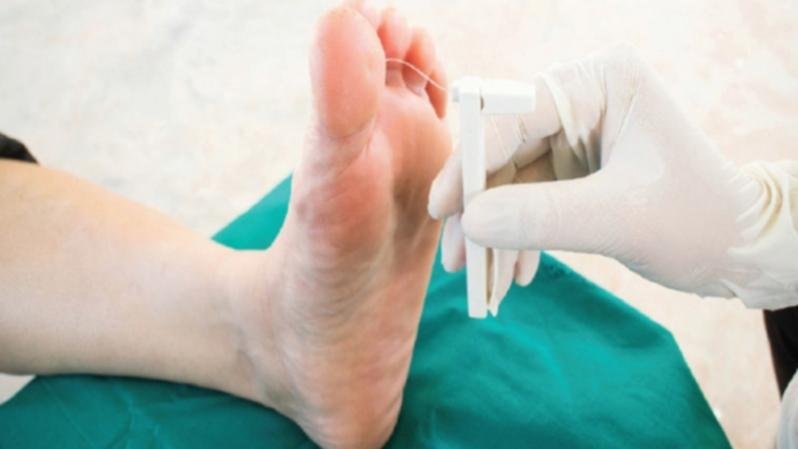Cynata Therapeutics Completes Patient Enrolment for Diabetic Foot Ulcer Trial
08 April 2024 | Monday | News

Image Source : Public Domain
Cynata Therapeutics Limited (ASX: "CYP", "Cynata", or the "Company"), a clinical-stage biotechnology company specialising in cell therapeutics, is pleased to announce the completion of patient enrolment in its Phase 1 clinical trial of CYP-006TK in diabetic foot ulcers (DFU).
CYP-006TK is Cynata's Cymerus™ iPSC[1]-derived MSC[2] topical wound dressing product candidate, which comprises MSCs seeded onto a novel silicon dressing. Due to reduced blood flow, patients with diabetes are at risk of developing non-healing wounds on the feet/lower limbs, which are also known as DFU. In addition to causing severe pain and discomfort, DFU pose a significant risk of infection, and if therapy is unsuccessful, amputation may be necessary. In this trial, CYP-006TK is being investigated as a potential treatment to promote wound healing in patients with DFU.
The pre-specified sample size has now been reached, with a total of 30 patients with DFU randomised on a 1:1 basis to receive either: (i) CYP‑006TK treatment for four weeks, followed by standard of care treatment for the rest of the study; or (ii) standard of care treatment throughout the study. In accordance with the study protocol, patients will be followed for 24 weeks following treatment initiation, which means that the last patient visit in this trial is expected to occur around September 2024.
Dr Jolanta Airey MD, Cynata's Chief Medical Officer, said:
"We are delighted to have completed enrolment, and we extend our thanks to all of the investigators, study staff and patients for helping us to achieve this milestone. We recently announced very encouraging initial data from the first 16 patients enrolled in this trial after 10 weeks' follow-up, with a median percentage reduction in wound surface area of 87.6% in the active CYP-006TK group, compared to 51.1% in the control group. We now look forward to completing the follow-up period and releasing the full results from this study shortly thereafter."
Most Read
- How Does GLP-1 Work?
- Innovations In Magnetic Resonance Imaging Introduced By United Imaging
- Management of Relapsed/Refractory Multiple Myeloma
- 2025 Drug Approvals, Decoded: What Every Biopharma Leader Needs to Know
- BioPharma Manufacturing Resilience: Lessons From Capacity Expansion and Supply Chain Resets from 2025
- APAC Biopharma Review 2025: Innovation, Investment, and Influence on the Global Stage
- Top 25 Biotech Innovations Redefining Health And Planet In 2025
- The New AI Gold Rush: Western Pharma’s Billion-Dollar Bet on Chinese Biotech
- Single-Use Systems Are Rewiring Biopharma Manufacturing
- The State of Biotech and Life Science Jobs in Asia Pacific – 2025
- Asia-Pacific Leads the Charge: Latest Global BioSupplier Technologies of 2025
- Invisible Threats, Visible Risks: How the Nitrosamine Crisis Reshaped Asia’s Pharmaceutical Quality Landscape
Bio Jobs
- Sanofi Turns The Page As Belén Garijo Steps In And Paul Hudson Steps Out
- Global Survey Reveals Nearly 40% of Employees Facing Fertility Challenges Consider Leaving Their Jobs
- BioMed X and AbbVie Begin Global Search for Bold Neuroscience Talent To Decode the Biology of Anhedonia
- Thermo Fisher Expands Bengaluru R&D Centre to Advance Antibody Innovation and Strengthen India’s Life Sciences Ecosystem
- Accord Plasma (Intas Group) Acquires Prothya Biosolutions to Expand Global Plasma Capabilities
- ACG Announces $200 Million Investment to Establish First U.S. Capsule Manufacturing Facility in Atlanta
- AstraZeneca Invests $4.5 Billion to Build Advanced Manufacturing Facility in Virginia, Expanding U.S. Medicine Production
News











